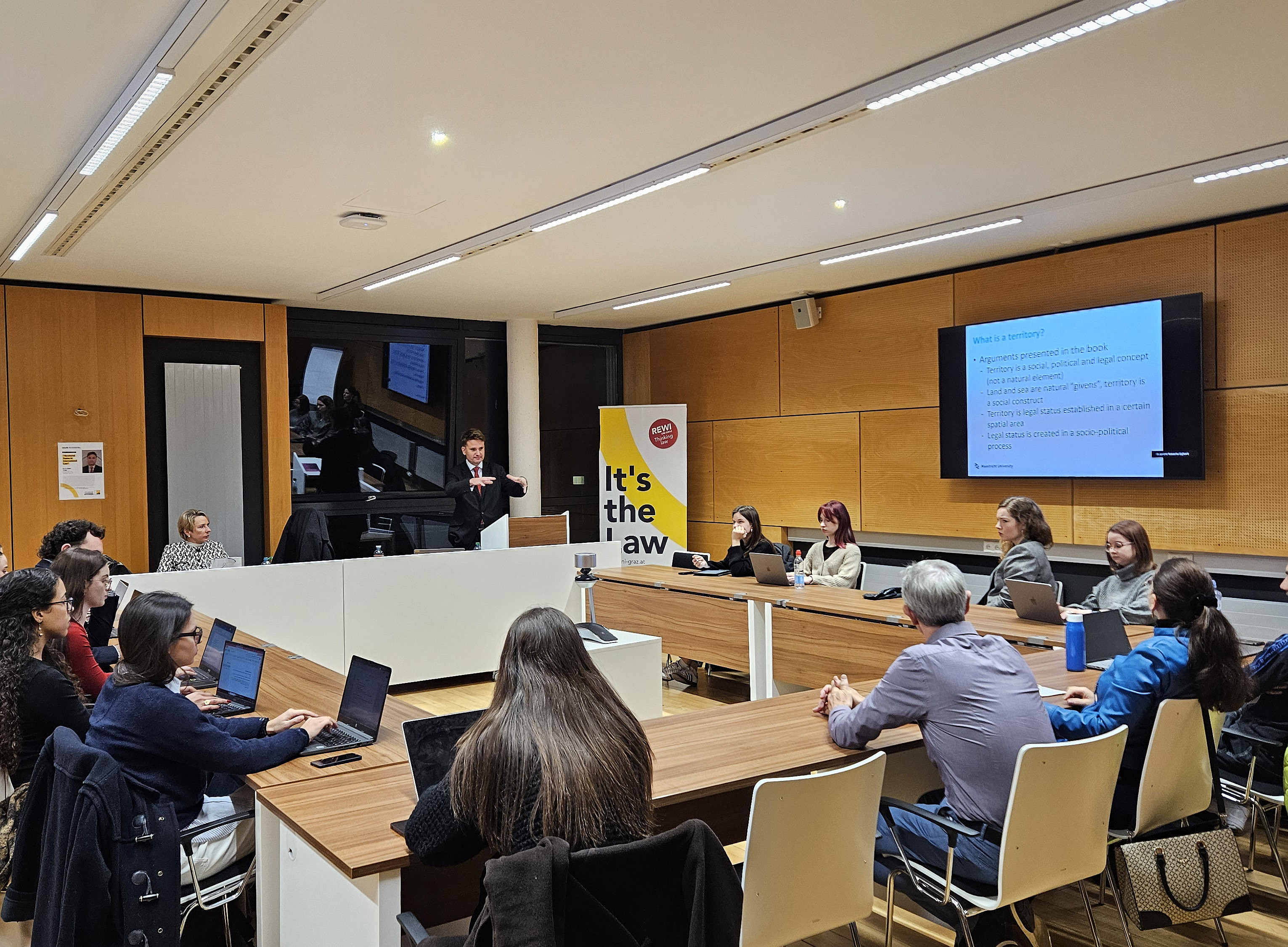A GILDS lecture by Prof. Jure Vidmar on his book "Territorial Status in International Law" took place on 21.11.2024.
In his book, Prof. Jure Vidmar presents new theories on the notion of territory and the legal status of territories in international law. He discusses the definition of territory and state in international law, how international law deals with non-state territories and how the relationship between territory, state and jurisdiction can be defined.
In Prof. Vidmar's opinion, territory is not a natural given but a social, political and normative construct that is created as part of a socio-political process. The Montevideo Convention defines the following prerequisites for the existence of a state under international law: a permanent population, a defined territory, an effective government and the capacity to enter into relations with other states. According to Prof. Vidmar, the fulfillment of these criteria is not a condition for the existence of a state. Rather, states fulfil these criteria because they are states and are recognized as such. Based on this view, the Montevideo criteria are simply reflective of already existing statehood.
In the second part of his lecture, Prof. Vidmar zoomed in on territories without statehood, often referred to as de facto states, unrecognized states, quasi-states or illegal states. Due to the lack of clarity regarding their legal status, the law applicable to such territories cannot be conclusively determined. At the same time, the usage of the term ‘state’ in such instances poses the risk of undermining the quality of ‘statehood’ as traditionally understood.
The Institute of International Law and International Relations at the University of Graz would like to thank Prof. Jure Vidmar for his insightful lecture. It also extends its appreciation to all in-person and online participants for their active engagement in the discussion.

